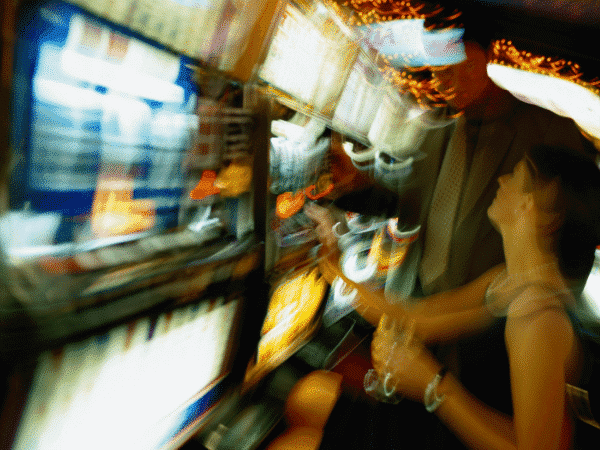
Addiction is not an easy topic to define and it has been commonly understood in the context of substance dependence and abuse. However, various researchers have found that anything capable of stimulating an individual has the potential to be addictive.
This is the idea behind the notion of process addictions: people can get hooked on seemingly normal activities or processes like being on social media or the internet, gaming, gambling, or even sex. These activities may produce pleasure or a sort of ‘high’ that leads to individuals constantly engaging in the same behaviors despite the adverse consequences.
When constant repetition leads to diminished control over the behavior, the cycle of addiction begins. This is commonly referred to as behavioral addiction.
What does addictive behavior or behavioral addiction mean?
The main feature of addictive behaviors is the inability of an individual to resist the temptation to perform specific activities considered harmful to them or others. Each process addiction can be a repetitive pattern of behavior that eventually hinders the individual’s basic functioning or daily living. This is why behavioral experts draw similarities between behavioral addiction and substance addiction.
According to Introduction to Behavioral Addictions (Grant, Potenza, Weinstein, et al), some of the common features of behavioral addiction is the feeling of ‘tension or arousal’ before engaging in the activity, and then experiencing ‘pleasure, gratification, or relief at the time of committing the act.’ It is also reported that people with addictive behaviors experience a craving or a strong urge before engaging in the behavior, similar to the cravings experienced by those who are struggling with substance abuse.

Moreover, people who are struggling with process addictions also build-up ‘tolerance’. This means that there is a decrease in the pleasurable feelings of engaging in the act. As a result, people engage or ‘binge’ in the behavior more often. Lastly, individuals can also experience a dysphoric state or the feeling of dissatisfaction or sadness while abstaining from the behavior, similar to the symptoms of a substance use withdrawal.
Despite similarities to substance addiction, addictive behaviors remain a controversial topic among experts, especially on the question of whether or not this type of addiction is a ‘legitimate’ addiction. However, it is worth noting that the American Psychiatric Association’s Diagnostic and Statistical Manual of Mental Disorders, Fifth Edition (DSM-5) included behaviors in the category of addictions. This categorization will impact future developments on improving prevention and treatment for this type of addiction.
What are some examples of addictive behaviors?
As of writing, the ‘Substance-related and Addictive Disorders’ section of DSM-5 explicitly includes gambling as an addiction but it also considers other conditions. Some of the generally considered process addictions are as follows:
- Buying/shopping addiction
- Sex/love addiction
- Food addiction

- Exercise addiction
- Internet addiction
- Video game addiction
Most people engage in the activities listed above to varying degrees. Some of these may be particularly more appealing or enjoyable on a case-to-case basis. Engaging enthusiastically in these seemingly common acts is not necessarily an addiction. However, knowing the signs of behavioral addiction will help in deciding if professional help or intervention is necessary.
Here are red flags to look out for:
- Spending a huge amount of time in planning, engaging in, and/or recovering from the act or behavior
- Dependence on the activity to cope or to feel better or normal
- Inability to stop despite adverse effects on physical, mental, and/or emotional well-being
- Inability to stop despite wanting to
- Overlooking and neglecting daily responsibilities to engage in the act or behavior more frequently
- Undergoing a ‘withdrawal’ when trying to stop (experiencing depression, dissatisfaction, numbness, etc.)
- Concealing or downplaying the degree of the problem
There are indeed similarities between being substance addiction and behavioral addiction. This means that programs intended for substance addiction also apply to treating addictive behaviors. One behavioral addiction treatment that can be applied is the use of cognitive-behavioral therapy for addiction or CBT. It is a proven effective treatment approach for addictions with the ultimate goal of identifying and eventually changing problematic thinking patterns and developing healthy and effective coping mechanisms to improve daily functionality which often leads to a better quality of life.
Is addiction a behavioral disorder or a disease?
There are various approaches to understanding addiction. One of the main questions often asked is whether addiction is a disorder or a disease. Clinically, addiction is often referred to as substance use disorder and the standard definition of a disorder is a set of symptoms or conditions that disrupts the normal functioning of the mind or body.
It was in recent decades that the disease model of understanding addiction has been widely accepted. In a public policy statement by the American Society of Addiction Medicine, addiction is defined as a primary, chronic disease of brain reward, motivation, memory, and related circuitry that makes an individual pathologically pursue reward through using substances and engaging in specific behaviors. This view acknowledges that addiction changes the way the brain functions. Those changes lead to distinct biological, psychological, social, and spiritual manifestations in the patient’s life.
This disease model helped in seeing addiction like any other disease such as cancer, diabetes, and heart disease–it is caused by a combination of biological, environmental, behavioral, and psychological factors, and is definitely manageable. This approach assisted researchers in identifying neurobiological abnormalities addressed by therapeutic interventions. It has also significantly reduced the stigma that addiction is a choice and a moral failure. This led to the creation of better treatment strategies for addiction. Thus, more people are getting professional help and eventually recovering.
How does addictive behavior differ from compulsive behavior?
Addictive behavior is the inability to resist an impulse to perform an act causing harm to the patient. It differs from obsessive-compulsive disorder in the sense that compulsion is caused by relief from the unease (dysphoria) of not engaging in the act. On the other end, the cause of an impulse is the experience of pleasurable feelings (euphoria) in performing certain behaviors. It is possible for addictive behaviors to develop into a compulsion over time, as the behavior itself becomes less and less pleasurable, which means it is driven less by positive reinforcement and more by negative reinforcement. This is why according to some views, addictive behaviors may be categorized in the impulsive-compulsive spectrum.
We Restore Hope, We Save Lives
Addiction remains a controversial discussion. It is constantly evolving with the advent of better technologies and new findings in researches. One thing remains clear: addiction is a chronic illness that treatments, professional monitoring, and support can manage. Addiction is TREATABLE.

If you need to get professional help for someone you love, do not hesitate to connect to us at Restore Health and Wellness Center. You may visit us at 6918 Owensmouth Ave, Canoga Park, CA 91303, or you can call us at 888-979-4570.
Here are at Restore Health and Wellness Center, we provide detoxification and rehabilitation services to people in need of quality, professional support. We restore hope, we save lives. Recovery is possible.





